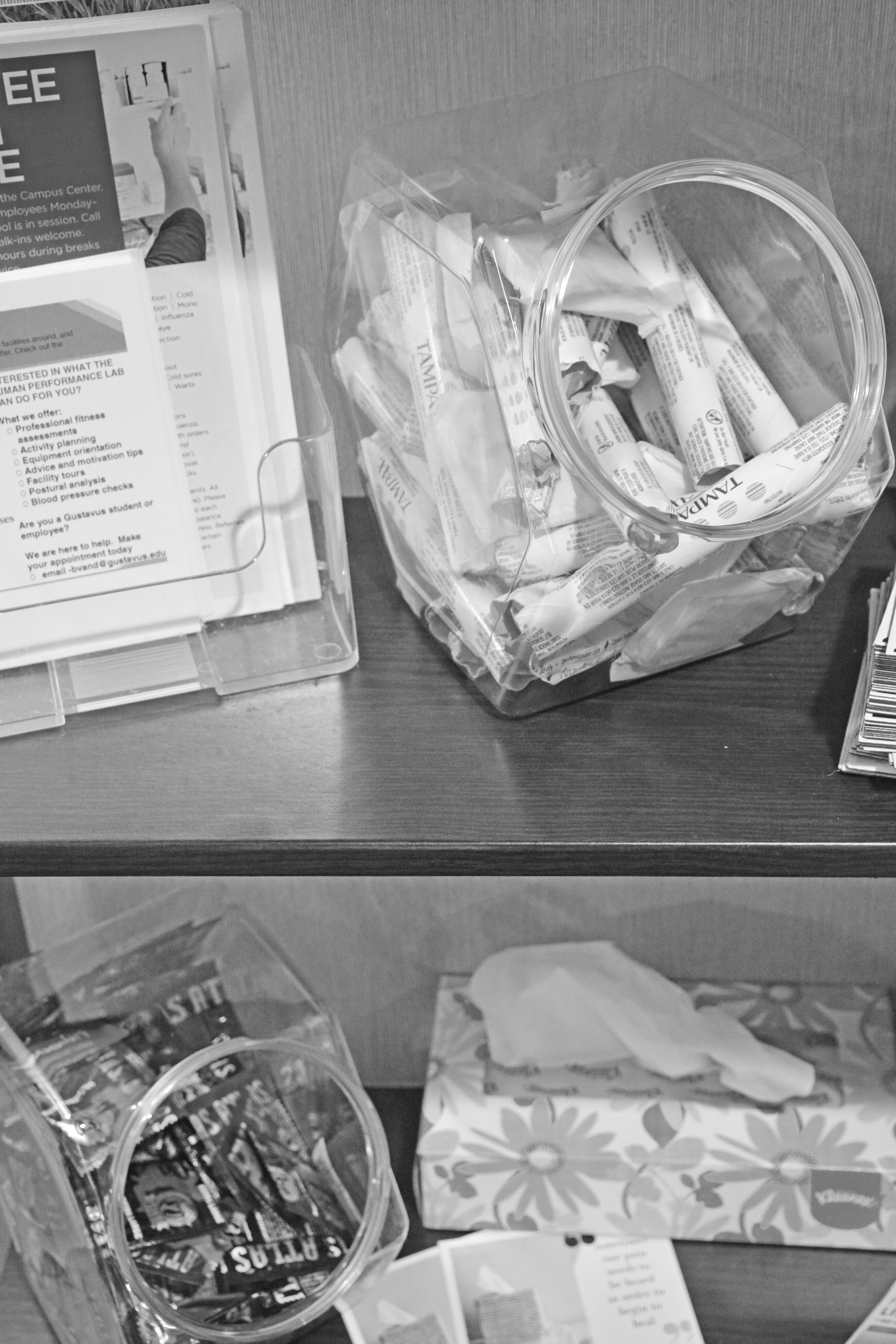Saturday, Oct. 19 is National Period Day and in heart of this, there will be a rally in Minneapolis along with several other cities around the nation. National Period Day and the rallies associated with it work for three main goals: to destigmatize periods, to educate citizens on menstrual health in a non-cisgender, normative way and end period poverty and period tax.
Periods have been stigmatized for centuries, despite the fact that half the population menstruates. Menstruation is a natural bodily function and many young people who menstruate are made to feel disgusting and less human because of it.
We hear period jokes in our daily lives and are told that they make us weak, crazy and dirty. And to cope with these stigmas many people who menstruate especially young people go to great lengths to hide their periods.
When walking to the bathroom we hide tampons and pads in our sleeves, pockets, bras or anywhere else we can stuff them. When talking to friends we have come up with “code words” to avoid actually talking about our periods in public. Every friend group has their own words for period like, “aunt flow”, “that good friend that visits every month” or in my high school friend group “shark week” and we have an equal amount of ways to talk about menstrual products as well. This stigmatization only leads to unnecessary anxiety and insecurity.
As you were reading this article you may have noticed that I’ve been using words like “people who menstruate” instead of women. This is because not all who menstruate are women. Transgender men and nonbinary people who were born female can also menstruate and they are extremely underrepresented in the minimal discussion on menstruation.
Details like referring to all people who menstruate as women or calling menstrual products “feminine” products may seem like small details to cisgender people, but are often a large source of discomfort for non-cisgender people. In addition to the current discussions and education on menstruation being extremely cisgender orientated, education on menstruation is also very sparse and unspecific.
Health classes in public schools often don’t clearly, if at all, explain how and why a period happens and the effects of the period beyond bleeding. Most who menstruate say that a period entails a lot more than just bleeding and periods are not a choice. We cannot choose if or when we get our periods.
The third main goal of National Period Day and the rallies is to protest period poverty and the pink tax. This is probably the issue that most people hear about, but don’t necessarily know the full extent of the effect it has on our economy.
According to NPR news, 49 states still tax menstrual products as luxury items. Personal hygiene and menstrual health are not luxuries, but a human right that everyone should have without question. Buying menstrual products every month is a large expense that many people who menstruate struggle to afford or are completely unable to afford.
At Target, period products range from around $4 to $13 per box and if people wish to use products that don’t contain chlorine, alcohol or paraben, the range is closer to $6-$13 a box.
It’s because of these high prices, in addition to the tax on these items that make them hard for people to afford and when they can’t afford them, they are forced to miss work or school until they can either get menstrual products or their period ends. People should never have to jeopardize their education or job because of a normal bodily function.
I talked to the leader of the Students for Reproductive Freedoms organization here at Gustavus, Emily Falk ’22, to get a better sense of how these problems effect Gustavus.
She pointed out that Gustavus used to provide menstrual products in all of the bathrooms, but stopped because people were “taking them”. The pay machines on campus also refer to menstrual products as “feminine” which is trans exclusive language. With tuition on campus being as high as it is, students are often on a tight budget. The expense to break their budget should never be their period.
“If the college is invested in their students that they will have menstrual products in all the bathrooms and get rid of the transphobic terminology” Falk said.
Students of all gender identities should feel welcome on campus and no student should have to worry about how they are going to afford menstrual products let alone miss classes due to their period. Join the nation in support of the eradication of period poverty, pink tax and the stigmatization of periods.
